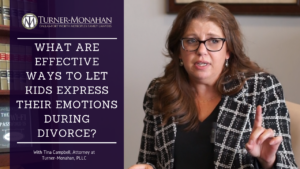How is divorce affected while the courts are shut down? Due to COVID, the court systems are shut down but only to a certain degree.
You can still file for divorce and you are still able to get hearings although these are done virtually via Zoom or made public through Youtube. Basically, anything that attorneys did before, they should still be able to do now but in a virtual manner.
The attorneys at Turner-Monahan have helped thousands of clients through their divorce process and know how to create and fight for a plan that works for you.
Learn today from Tyler Monahan how the shutdown of our court systems due to COVID has affected divorce proceedings.
In regards to the court system right now being shut down with COVID, it shut down to a certain degree. You’re still able to file for divorce.
Any divorce that includes children, you have a Suit Affecting the Parent-Child Relationship component to that. You’re still able to get hearings, albeit virtually via zoom. They’re made public on YouTube, but immediately after the hearings are finished, they’re taken down and deleted forever from YouTube.
A state does mandate that these hearings are made public to make sure that anybody who may want to see or watch the hearing is able to do so via YouTube. The Zoom hearings allow you to do everything that a regular hearing would allow you to do.
The only hearings right now that are in front of the court are Emergency hearings where a child is in danger and protective order in some cases, enforcements.
But for the most part, courts are trying to be very judicious and very careful on having people come down to the courthouse. That doesn’t mean that you can’t file for divorce and you can’t file for protective order, you can’t file for a Suit Affecting Parent-Child Relationships or modifications.
There are people that need child support and make sure that they have their living arrangement worked out so you definitely can still do that. It’s just that there are a few more hoops to jump through and it might take a little bit longer to get a hearing set up. But at the end of the day, if the attorneys have done it before they should be able to get things done.



